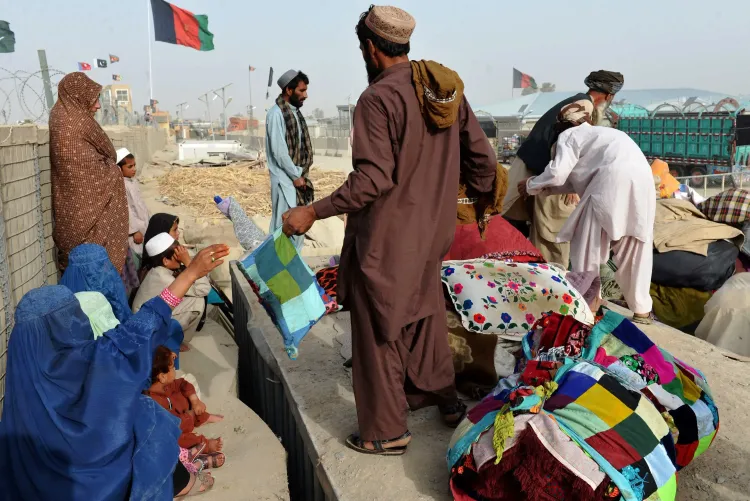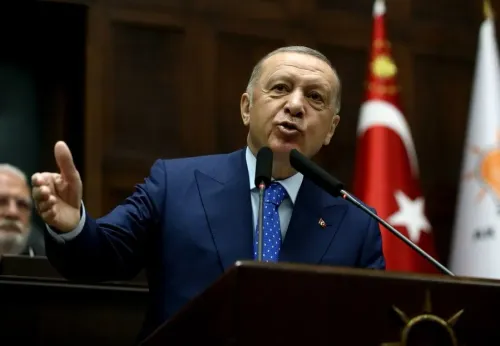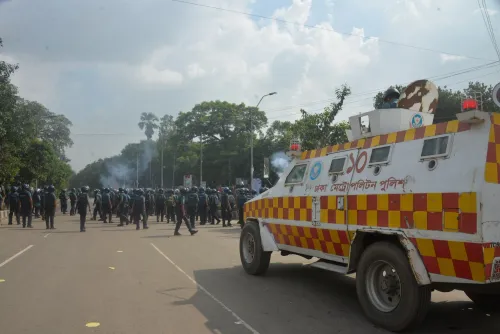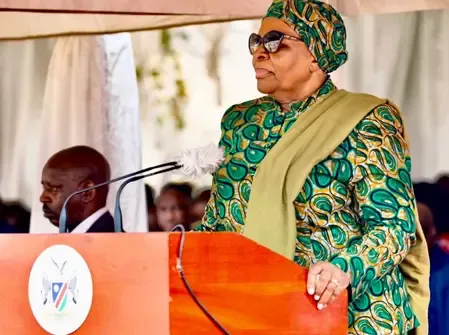Afghan Refugees Urge Action Amid Rising Abuse in Pakistan and Iran

Synopsis
Key Takeaways
- Afghan refugees are facing ongoing abuse in Pakistan and Iran.
- Despite legal documents, they are at risk of detention and deportation.
- Human rights organizations are advocating for their rights.
- The UN has condemned forced deportations and called for dignity in treatment.
- Vulnerable groups are particularly at risk in these situations.
Kabul, Mar 5 (NationPress) Afghan refugees are enduring persistent harassment in Pakistan and Iran and are urging the Taliban government and various human rights organizations to intervene on their behalf.
Despite possessing valid legal documents, these refugees continue to face threats of illegal detention, deportation, and discrimination by local authorities, especially in Pakistan.
One refugee shared with Afghanistan's TOLO news network, 'Police officers detain Afghan refugees for any reason, regardless of their legal status. They deport everyone, leaving behind their wives and children without any means of support.'
Rights activist Mohammad Khan Talebi Mohammadzai expressed grave concern over the plight of Afghan refugees in host nations, particularly Pakistan. 'The current Afghan government, the United Nations, and international aid organizations must address the conditions of Afghan refugees in these countries,' he remarked to Afghan media.
The refugees are adamant that they seek only the basic rights guaranteed to them by international organizations and nothing more.
Earlier this month, a coalition of human rights organizations and refugee advocacy groups sent an open letter to the Pakistani government, demanding an immediate end to the forced deportation of Afghan migrants.
The letter highlighted that this policy breaches international law and Pakistan's commitments to refugee protection. Concerns were also raised regarding the actions of the Pakistani Police, who have detained several human rights activists and deported unaccompanied children. Among those at risk of deportation are pregnant women and individuals with disabilities, according to local Afghan media reports.
Arafat Jamal, a representative of the United Nations High Commissioner for Refugees (UNHCR) in Afghanistan, recently condemned local governments for their role in forced deportation and expulsion. 'Treat people with dignity, ensure that those wishing to return home do so voluntarily, and collaborate with us to ensure that the movement is organized and contributes to stability. Failing to do so could lead to chaos on both sides of the border, which no one desires,' he stated.
For decades, migrants fleeing war and conflict in Afghanistan have sought refuge primarily in Pakistan and Iran. The return of Afghan refugees amid a growing food crisis and instability in Afghanistan will worsen their plight. Afghan media reports indicate that refugees who are expelled or forcibly deported face significant abuse and harassment, particularly in Pakistan.









